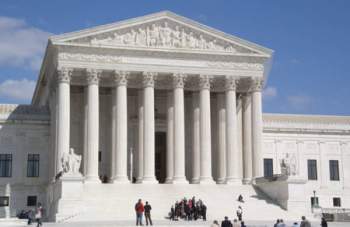
Cohen v. California

The Background of Cohen v. California (1971)
The case of Cohen v. California took place with regard to the freedom of speech and expression within the jurisdiction of the State of California. While inside the Los Angeles County Courthouse, Paul Robert Cohen donned a jacket expressing language determined to be vulgar with regard to the ongoing military draft process taking place at the time; the statement was apparent on the back of his jacket – however, Cohen did not wear the jacket into the courtroom, but donned the jacket upon leaving the courtroom. Upon donning the jacket, he was subsequently arrested on the grounds of disturbing the peace within a public setting; in addition, he was also charged with an act of profane expression.
The Case Profile of Cohen v. California
The following is a case profile of the legal trial eponymously titled ‘Cohen v. California’:
Date of the Trial: February 22nd, 1971
Legal Classification: Administrative Law; this legal field associated with events and circumstances in which the Federal Government of the United States engages its citizens, including the administration of government programs, the creation of agencies, and the establishment of a legal, regulatory federal standard
Accused Criminal Activity: The following criminal activity and charges were cited by Paul Robert Cohen against the State of California within the appeal brought forth subsequent to the initial ruling:
Cohen accused the State of California of violating both his 1st and 14th Amendment rights had been violated upon his arrest; he explained that his expression was neither illegal nor criminal in nature – as a result, the process under which he was arrested was in direct violation of his freedom of expression
United States Reports Case Number: 403 U.S. 15
Date of the Delivery of the Verdict: June 7th, 1971
Legal Venue of Cohen v. California: The Supreme Court of the United States
Judicial Officer Responsible for Ruling: Chief Justice Warren E. Burger
Involved Parties: The following are the parties named with regard to their involvement in the Cohen v. California case:
Paul Robert Cohen; Plaintiff – Cohen v. California
The State of California; Defendant - Cohen v. California
Verdict Delivered: The Supreme Court ruled in favor of Cohen, explaining that incendiary, vulgar, or profane expression absent of criminal intent cannot be deemed as criminal acts; the supreme Court added that although the determination of obscenity is both relative and subjective, expressions laced with profanity must be evaluated with regard to their expressed intent
Associated Legislation with regard to Cohen v. California: The following statutory regulations were employed with regard to the Cohen v. California trial:
The 1st Amendment of the Constitution of the United States ensures that every American citizen be granted the freedom to express themselves in accordance with applicable legislature enacted in order to preserve the safety and wellbeing of the general public; however, the right to free speech prohibits ideas, ideology, or creeds to be imposed on any individual without their respective and expressed consent
The 14th Amendment illustrates legislation that disallows the government from infringing on the right(s) to pursue ‘Life, Liberty, and the Pursuit of Happiness’ with regard to any and all citizens of the United States of America – this statute is applicable to all measures of gender, race, religion, and age
NEXT: Cohens v. Virginia
